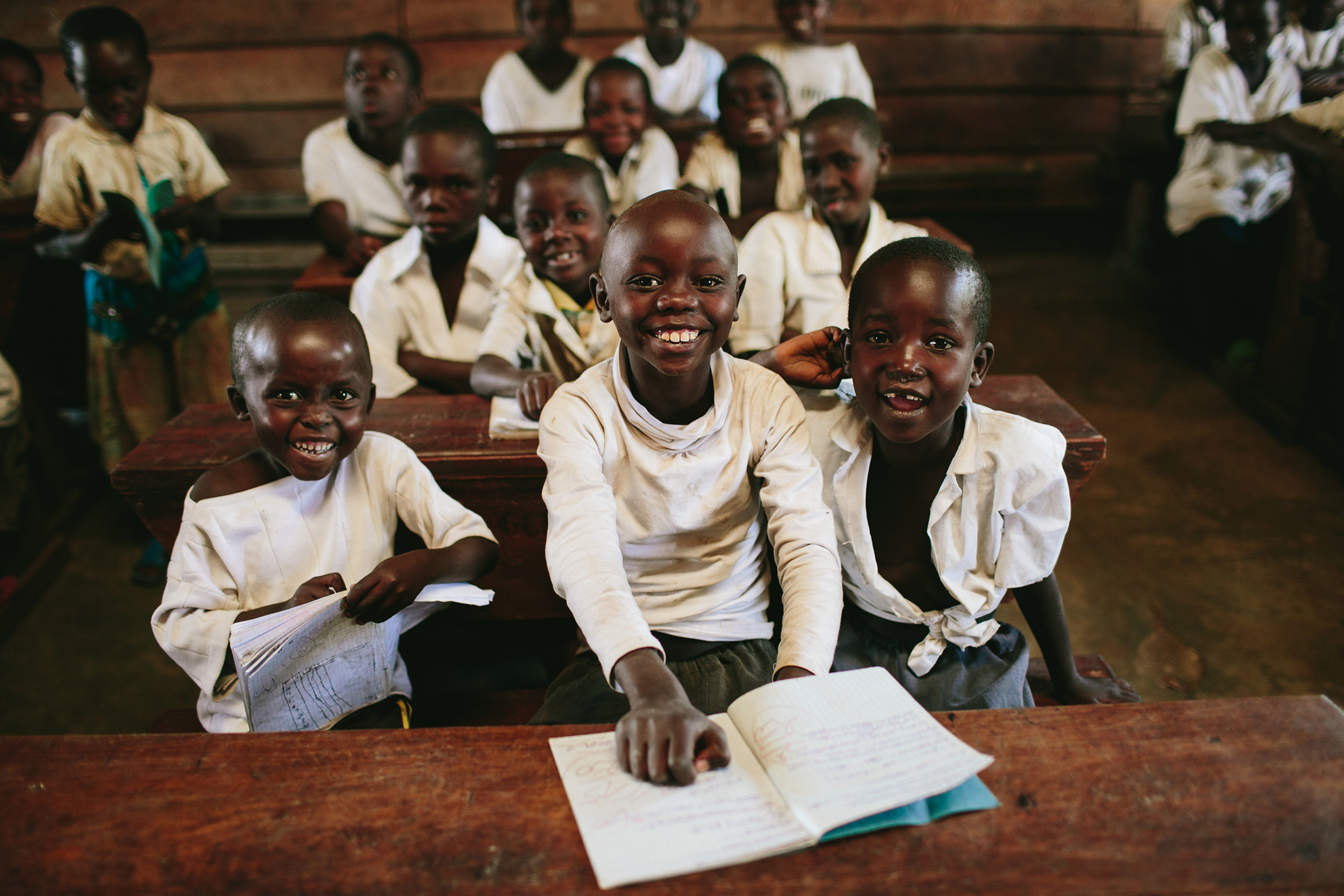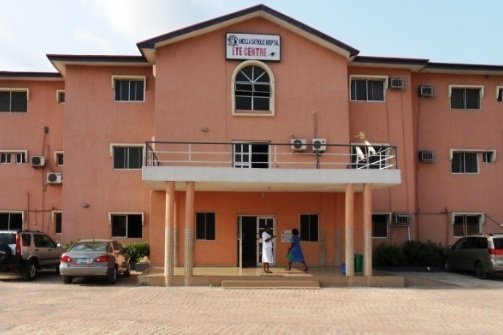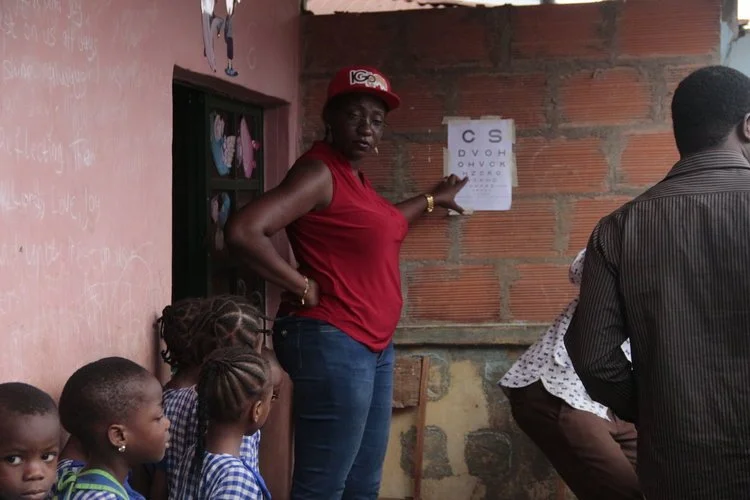
The IGo Corp
Childhood blindness and visual impairment in children are significant health problems in the African Region and other developing countries.
Considering today’s level of technological advancement and knowledge, up to 80% of blindness is preventable and treatable. Cost-effective interventions can be made available for the major causes of avoidable blindness. However, millions of people in this region, especially children, remain at risk of visual loss due to the lack of eye-care services.
While these eye problems may affect all age groups, uncorrected eye problems account for 95% of visual impairment among children. Correcting these disorders in children is especially important, as such conditions can interfere with children’s education and personality, as well as may affect their future opportunities.
“We want to eradicate preventable childhood blindness, improve vision and support education of children in Sub-Saharan Africa.”
We, the IGo Corp, recognize and connect with the urgency of supporting the eye care of children in developing countries, especially Sub-Saharan African countries, where there are neither enough resources nor the necessary awareness of the need to support children’s vision.
It is a fact that underprivileged families struggling to provide food, clean water and shelter for daily living will rank eye health and correction low on the priority list for resources.
It is this recognition that inspired the creation of our organization, the IGo Corp, with the mission to support the vision, and consequently the education of children in Africa.
The IGo Corp will partner with local ophthalmologists, clinics, and schools to provide support through free early screening programs to detect early cases and provide appropriate optical correction to improve visual function and help halt the progression of further deterioration to their eyesight.
Globally, an estimated 1.4 million children are blind, 320,000 of whom live in sub-Saharan Africa.
The number of children affected by vision problems worldwide is even bigger: nearly 13.5 million children. The rates of vision problems only increase as children age. These eye disorders can lead to permanent visual impairment if not identified and treated early by an eye doctor. 60% of children die within a year of going blind.
Many of these childhood vision problems can be prevented if treated early enough. Yet, eye care services for children are limited and expensive in Nigeria, and the childhood population remains largely underserved in terms of eye care. However, the return on the investment to eliminate childhood blindness is huge.
75% of knowledge a child acquires is by what they see.
Poor childhood vision affects performance in school or at work, and negatively impacts the future of the child. At IGo, we deeply care about how vision problems can and do adversely affect children’s ability to function in and enjoy learning.
With our work, we seek to raise awareness about childhood blindness and visual impairment, connect children who need care with professionals, and engage in advocacy.
How do we tackle the problem of childhood blindness and visual impairment?
Provide free eye examinations and prescription glasses to students in rural and low socio-economic communities
Initiate community-wide examinations to identify candidate partner schools (requirement: rural areas, students with uneducated parents, low socioeconomic schools)
Initiate community-wide examinations to identify and treat children with severe vision impairments
Partner with overseas medical practitioners to provide surgical interventions to identified children with severe vision impairments/cataracts





Our Campaigns
-
Monday, Dec 21, 2016 marked the beginning of making good on their promise, as IGo collaborated with TINY & GREAT Creche & Nursery and the African Center for Innovation and Leadership Development (ACILD) in a united effort to support children's vision in Ogbomoso, Nigeria. The event was hosted to: conduct eye test for the students of the school, and to provide medications and prescription glasses to students determined to be in need of them. A total of 43 students, 8 staff members and 4 parents were carefully examined and tested by the ophthalmologist, Dr. Adepoju. While over 90% of the children tested checked out as having good vision, Dr. Adepoju highlighted that childhood visual impairment and blindness in developing nations like Nigeria remain a matter of high priority for the WHO, which estimates that a child goes blind in both eyes every minute in a developing nation and 60% of such children die within a year of going blind. Complementing IGo's focus on children, she remarked that compared to adults, the lifelong impact of visual impairment on children is prodigious due to longer period or years of disability, which come with emotional, social, and economic costs to the child, the family, and society as a whole.
She admonished IGo to not limit their efforts and support to just prescription glasses as children of this age-group would benefit from supplements such as vitamin A, which could help prevent vision impairment. One of the parents, Mr. Esuola, when asked to share a word about his experience, said: “This is wonderful! TINY & GREAT never ceases to amaze me. They continue to offer unique amenities, find innovative ways to care for our children and give them the best education possible. Bringing two international partner organizations to do free eyes-sight check-up for children under-six is unheard of. I am happy to benefit from this and I hope that people who hear about this would become more aware of the need to care for children's vision.” Mrs. Togun, the proprietor of the school that only serves children up to nursery two, believes that adequate and individualized attention is necessary for each child at this age in order to truly lay a solid foundation for education. She would rather continue to seek and invest in innovative amenities and experience for further enrichment of her target population of students than expanding to the more profitable primary school sector. Currently all students of the school enjoy the group accident insurance scheme facilitated by Boss Insurance Brokers; in addition, the school is the only one of its kind in the entire Oyo State that provides an avenue for kids of 3mo.- 5 yrs to have an enriching after-school program.
-
On Wednesday, the 27th of March, the team returned to Tiny & Great Creche & Nursery school, it’s first VEE partner, in Ogbomoso, Nigeria. It was gratifying to learn that the school has honored it’s commitment of conducting screening once-a-year for its students; and in fact they had recently concluded one. The IGo team donated educational toys and school supplies to the children and enjoyed a fun playful time of re-uniting with the children.
IGo’s next course of action is to extend our mission beyond testing for refractive errors, to include a community-wide screening of children who could benefit from surgical interventions. In order to accomplish this, we have formed partnership with mission ophthalmologists (Dr. Degun and Dr. Oye-Lawrence) who are excited to provide support in terms of expert guidance and some resources.
-
First event at Shekinah Glory Nursery and Primary happened on Wednesday, 3/22/2017. The IGo team of a community ophthalmologist (Dr. Bunmi Ashano); a community practitioner and public health specialist in monitoring and evaluation (Dr. Nike Degun); a UK-based nurse (Mr. Morruff); media team (photography: Segun Leigh; videography: Taiwo Egunjobi; social media: Tolu); IGo’s Chief Strategist (Taiwo); and local helps enlisted (Abdulahi & Titi); arrived the school in Yemetu, Aladorin at 7:30 am to set up. Two stations were set up and Dr. Bunmi and Dr. Nike assessed the children and documented at-risk students with need for corrective lenses or further follow-up.
Due to a very large school population, our ophthalmologists focused on children of ages 4 and 5 years old. A total of 129 students were tested for refractive errors. During the screening, a contagious eye infection was observed in 4 children, who were immediately prescribed antibiotics eye drops. One of the children, a (little girl) had an infection that was quite severe and her eye was obviously swollen. Her mother assumed it was a boil that would disappear by topically applying vaseline to the site of infection. Immediate help to such a child was extremely rewarding.
It was also a powerful teaching moment to her parent and teachers that children need more attention to their vision and health in general. 2 children also had a contagious skin infection for which the general practitioner also prescribed antibiotics. In addition to this, the IGo team also provided healthy Yogurt snack to over 200 students as well as school supplies like pencils, crayons, erasers.
The classrooms in this school were poorly lit and extremely small and confining; it undoubtedly would promote easy spread of diseases.
The team wrapped up around 3pm, with words of advice from the lead ophthalmologist, Dr. Ashano, to the teachers. She showed them how they could conduct the same test to identify candidates that may need further testing and follow-up. She also strongly admonished on the importance of paying attention to a child’s need beyond their jobs to teach. Often times truancy may result from inability of a child to see and pay attention, thereby becoming disruptive. She stressed the importance of seeking care at the primary care health facility in the neighborhood and ensure that children with contagious infections should not be allowed in school until they feel better or are no longer contagious.
-
This summer, we are happy to be partnering with Ancilla clinic in Lagos, Nigeria to provide surgical care to children who represent some of the poorest in Nigeria and have been diagnosed with cataracts. Some of these children, including ones as young as 7 years old, suffer visual impairment due to cataracts in both eyes, making activities of daily living difficult and sometimes simply dangerous.
Partnering with home-based ophthalmologists and clinics such as Ancilla would serve to extend the reach of our mission to support children who have been pre-identified for surgical interventions on more serious conditions.
We are thankful for this new partnership and look forward to going home this summer to fund the surgical needs of at least 25 children who have been prioritized on the pediatric cataract surgery list.
As a young organization, we can’t succeed on our own. We welcome and appreciate your continued support as we embark on a summer mission trip to provide the gift of improved sight to children.
Your donations would go towards covering the cost of surgery, general anesthesia, post operative medications, and glasses where needed.




